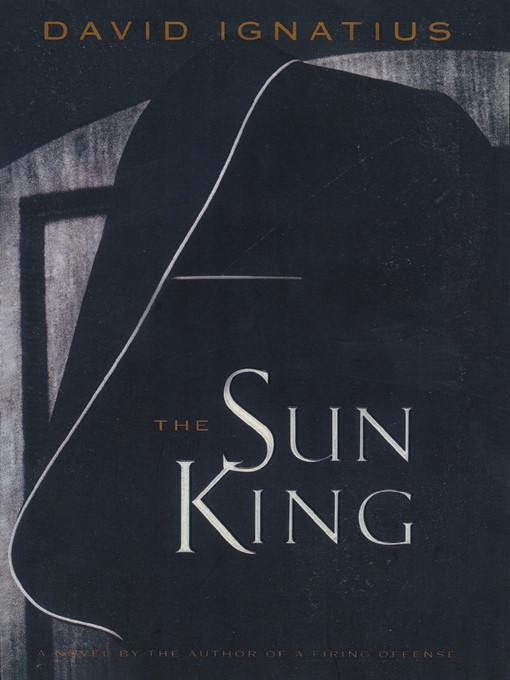
The Sun King
کتاب های مرتبط
- اطلاعات
- نقد و بررسی
- دیدگاه کاربران
نقد و بررسی

August 2, 1999
Washington Post columnist and accomplished spy novelist Ignatius (A Firing Offense) here largely abandons the mechanics of espionage and sets a character study of ambition and intrigue against the workings of a great Washington paper. The Washington Sun and Tribune, is, like the Post, a serious, family-owned business. David Cantor, the novel's cynical narrator, is the editor of Reveal, a debt-ridden society magazine at the other end of the spectrum. Providentially for Cantor, a feature he writes on mysterious new D.C. billionaire Sandy Galvin gives him a new lease on life. Galvin is intent on buying the Sun, and in exchange for some inside information, he promises to make Cantor his lifestyle editor. Cantor and Galvin are both Harvard men, though Galvin never graduated, and their business relationship becomes a friendship shot through with a shared sense of nostalgia and unrealized ambitions. All goes according to plan: Galvin panics the Sun's owners into selling to him, then shakes the place out of its stodgy slumbers with bingo contests and a cable-TV station hook-up. Cantor eventually realizes, however, that Galvin's real aim is to win back his one-time Harvard girlfriend, gorgeous Candace Ridgway, the paper's patrician foreign editor, a woman left with a "cold heart" after the Vietnam-era suicide of her father, then deputy secretary of defense. As Galvin's rise leads to his inevitable fall, Cantor watches from the sidelines, playing Nick Carraway to Galvin's Gatsby. A thoroughly involving narrative with a sharp, satiric edge, Ignatius's contemporary take on the tragic confluence of love, power and ambition is a sophisticated look at the media mystique and the movers and shakers in our nation's capitol. His stylish, fluent prose, anchored with fine atmospheric detail, gives the story texture and momentum. Agent, Raphael Sagalyn.

May 1, 1999
Award-winning Washington Post columnist Ignatius has several thrillers to his name, but here he reputedly tries for something more literary. An examination of mature love, the novel features a filthy-rich tycoon intent on securing both Washington's leading newspaper and the attentions of an old flame, now a journalist.
Copyright 1999 Library Journal, LLC Used with permission.

July 1, 1999
Ignatius, a newspaperman as well as a novelist, is fascinated by the conflicts between the tenets of serious journalism and the imperatives of politics and business. He explored this dynamic in "A Firing Offense" (1997) and does so again in this nimble improvisation on "The Great Gatsby." Sandy Galvin is Ignatius' Jay Gatsby. A charming self-declared billionaire, he comes to the attention of Ignatius' snidely cynical narrator, David Cantor, when he buys not one but two mansions in Washington, D.C. Cantor, whose dream is to be a booker for "The Jerry Springer Show," works for an all-but-moribund high-society magazine and gets himself invited to Galvin's lavish "I'm here!" party. Galvin recognizes Cantor for the factotum he is and brings him along as he finagles his way to the helm of the city's most distinguished newspaper. Ignatius has a grand time depicting Galvin's outrageously crass campaign to boost the paper's circulation, which includes bribing the mayor and producing a goofy cable show called "The Anti-News." There is an element of insanity to Galvin's machinations, which are depicted in scenes deliciously redolent of 1930s Hollywood newsroom dramas, and, gradually, the source of his mania emerges in the form of Candace Ridgway, a Pulitzer Prize^-winning journalist. Cool and gorgeous, she is the only woman either the enigmatic man-who-would-be-king or Cantor ever loved, and she may well be more ruthless than the two of them put together. It takes nerve to use Fitzgerald's masterpiece as a template, but Ignatius makes it work in this suavely written, shrewd, and compelling take on Washington, the media, and, most arrestingly, the consequences of misplaced love. ((Reviewed July 1999))(Reprinted with permission of Booklist, copyright 1999, American Library Association.)

























دیدگاه کاربران